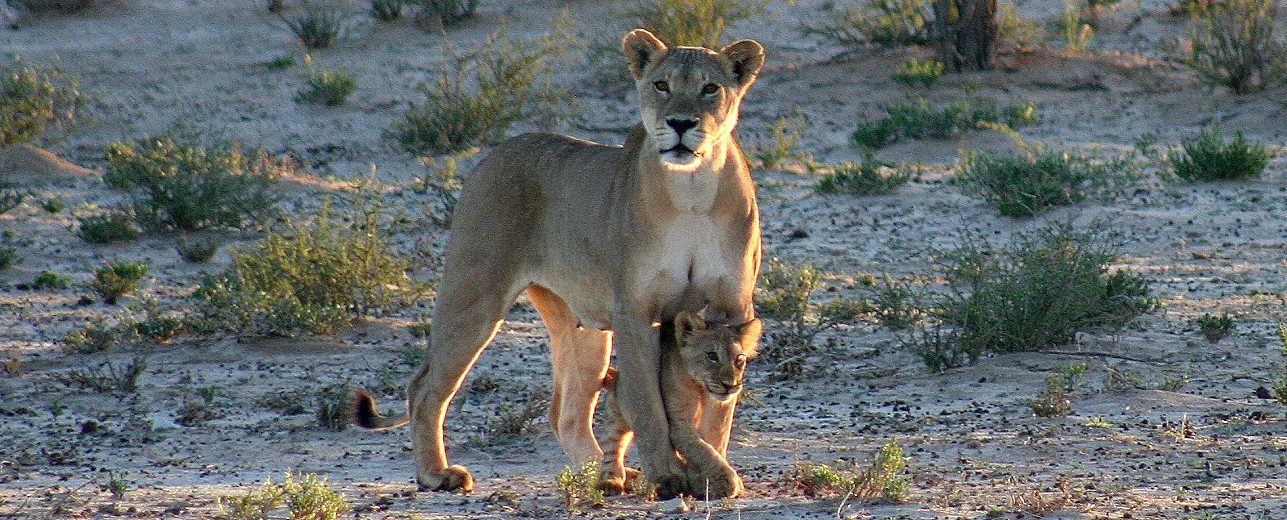Flying over northern Botswana at the end of the dry season brings home just how delicate our hold on life is. It has nothing to do with the single-engined Cessna I’m in nor the fact that it is made of very dentable aluminium. It also has nothing to do with the +40C temperatures that force us to eat up extra runway in order to take off. No. This sense of fragility comes from what you see from the air – a god’s view of life on earth.
![]()
We follow the line of the Chobe River in a westerly direction. The ribbon of blue and green stands out in contrast to the hinterland where grey scrub stretches to the curve of the horizon. From here the river deceives you that all is well in the Garden of Eden. Yet when you fly across the backcountry you realise that most of Africa’s species are not nourished by water alone – they need this bleak landscape to exist.
Looking down on skeletal woodlands it’s hard to believe that the spindles of xylem and phloem that reach up, as if in supplication for rain, can support any kind of biodiversity let alone the large biomass they do. A dark coin on the prickle-earth below proves the point when it turns out to be an elephant taking refuge beneath a naked tree. The sanctuary is too small for its great body so the hindquarters balloon out into full sunlight with the head and ears thrust into a pathetic patch of half-baked shade.
Enduring the last weeks of the dry season is an ordeal for all species. Humans call it, not-so-ironically, Suicide Month. This year the rains are late, relief long in the coming. Their tardiness underscores the necessity for real implemented change ahead of the COP17 climate change talks in Durban.
Scientists have warned that extreme weather conditions will become common and that Africa will be the hardest hit of all the continents. Although the culprits behind climate change are not African the effects will be most keenly felt here. In the drier regions droughts will be more dire while in wetter areas flooding is an increased danger. However tempting it may be to think that this is an African problem the scenarios playing out before the entire globe are gloomy if world leaders don’t take action now.
Food security is already high on the agenda of most governments and Africa is the new darling of land-hungry nations. If arable land is compromised due to climate change the domino effect across the world will be devastating for everyone. Desperation drives destruction. No nation will be protected.
The elephants of northern Botswana know this only too well. Along the banks of the Chobe River the forests have been destroyed, exacerbating their torment.
From up here, 2,000 feet above the parched ground, I realise what this landscape really needs, as much as it needs rain, is for world leaders to forge a new path of creation-sustaining activity.
Business as usual is going to end in tears for everyone.

Brilliantly written and right on the money. Extreme weather conditions are not only going to affect Africa, they are already doing just that here in Europe. Italy has had unexplained flooding for weeks now. Hope the people attending the climate change talks aren’t just there for the drinks and snacks!
Clarissa,
Take a couple of days off and have a read of the science here…
http://jennifermarohasy.com/author/nasif-s-nahle/